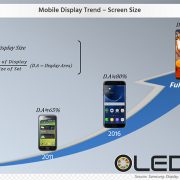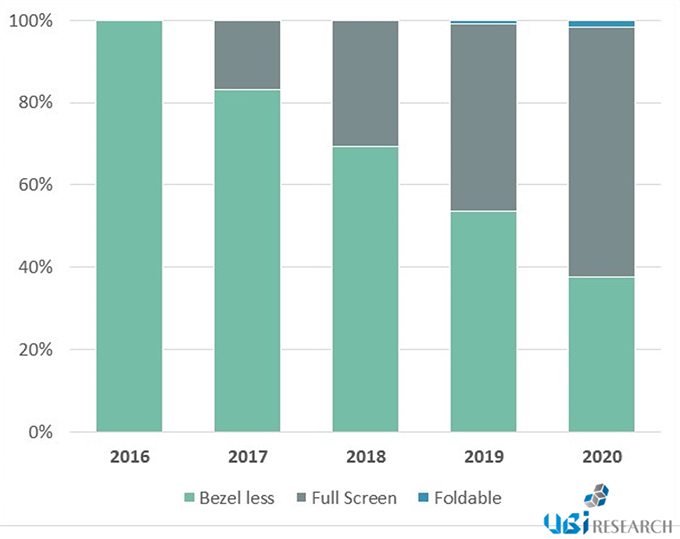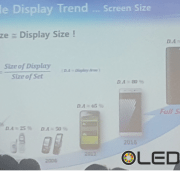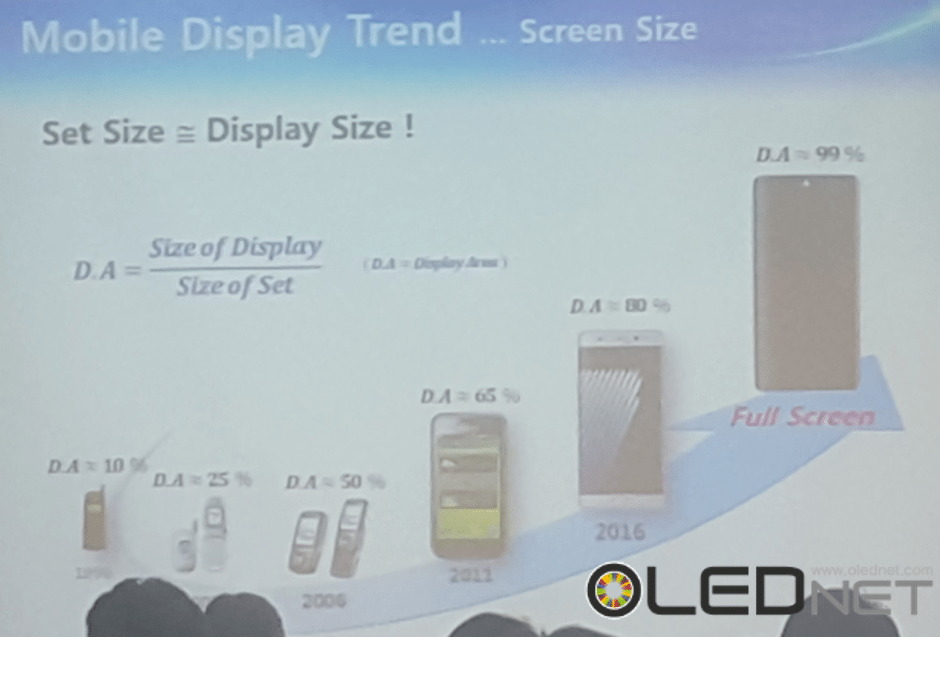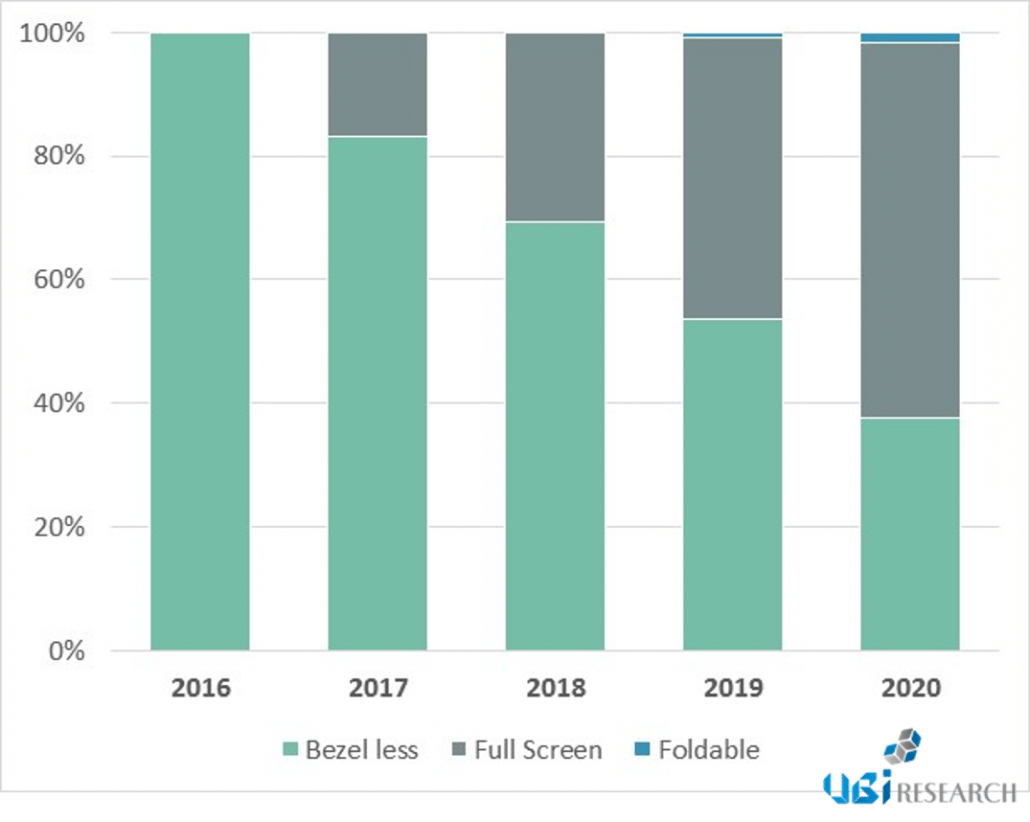From bezel-less to full-screen, Full-screen smartphone’s era has come closer.
The area of display for a smartphone is getting wider.
The display area (hereinafter as D.A.) indicates the display size versus a set size. At the IMID 2016 business forum, the chief of Samsung Display, Park, Won-sang said that “The D.A. may be a core element to overcome the limit of its size through the portability of a smartphone.” and, “henceforth, the full-screen smartphone with more than 90% of D.A. will be released and take the lead the market.
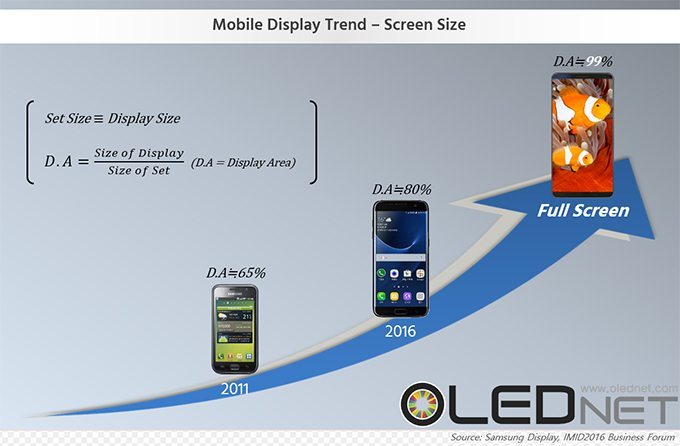
<Samsung Display’s New Product>
The D.A. of an existing smartphone has been about 60-70%.
However, Samsung Electronics has enlarged D.A. over 75% by launching of Galaxy S7 Edge and Note 7 applied flexible AMOLED in 2016. Several companies in China have similarly started the enlargement of the D.A. through Nubia Z11 with 75.2% by ZTE and Mi Mix with 83.6% by Xiaomi.
As LG Electronics has applied full vision 5.7 inch QHD+ display by 18:9 at their G6, its D.A. reached to 80.4%. It was increased 0.4 inch compared to the former G5’s display size, but the bezel was decreased by 1mm from each side to side. It brings the enlargement about 10% of D.A. as a result.
Additionally, Galaxy S8 and iPhone S8(tentative name) planned to launch in 2017 will be more than 91% of D.A. according to reducing the bezel through up and down as well as side to side, since the models will not have a plan for the home button.
According to this, the smartphone market for full-screen maximized D.A. may lead a market trend for high-end smartphone, and the flexible AMOLED may be expected to take the market of full-screen smartphone forward.
Flexible AMOLED takes the high-flexibility through the plastic panel, it makes easy to realize the full-screen by arranging efficiently diverse modules to a smartphone.
By the “Key issue and Market Analysis for Foldable OLED” report published by Ubi Research in October, it looks forward that a smartphone with full-screen AMOLED type (a type which is minimized bezel area for up and down as well as side to side) will exceed the market share of OLED panel for bezel-less type as about 60% in 2020 from about 17% in 2017.
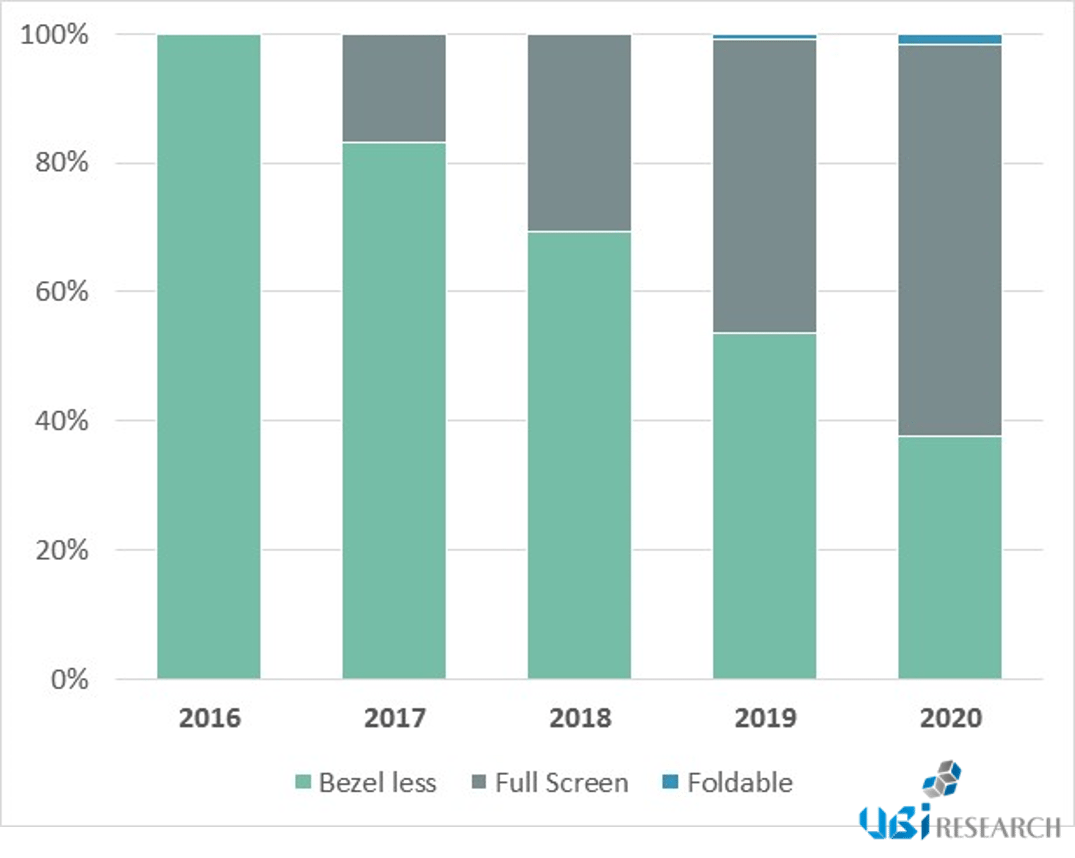
<A smartphone market share by display type, Source: Ubi Research>

